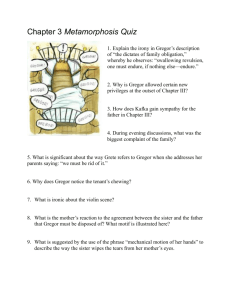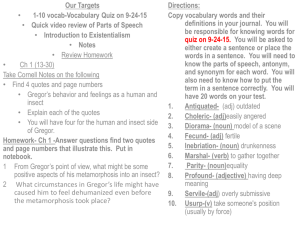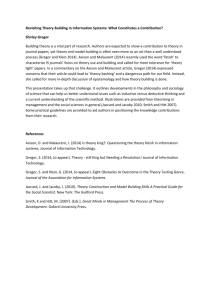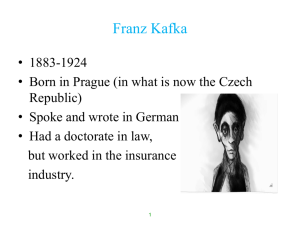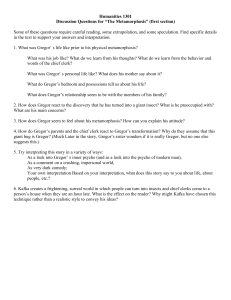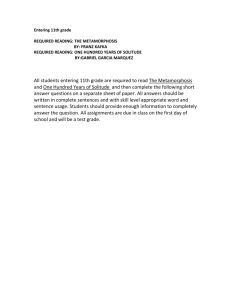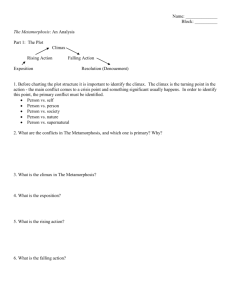Study Guide
advertisement
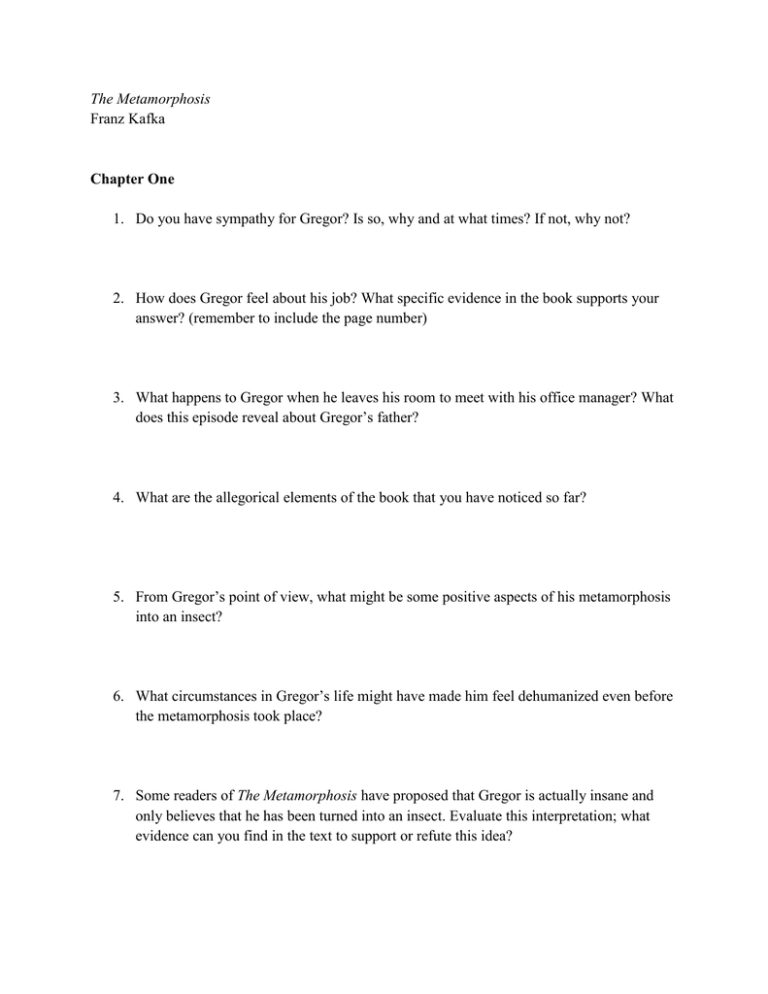
The Metamorphosis Franz Kafka Chapter One 1. Do you have sympathy for Gregor? Is so, why and at what times? If not, why not? 2. How does Gregor feel about his job? What specific evidence in the book supports your answer? (remember to include the page number) 3. What happens to Gregor when he leaves his room to meet with his office manager? What does this episode reveal about Gregor’s father? 4. What are the allegorical elements of the book that you have noticed so far? 5. From Gregor’s point of view, what might be some positive aspects of his metamorphosis into an insect? 6. What circumstances in Gregor’s life might have made him feel dehumanized even before the metamorphosis took place? 7. Some readers of The Metamorphosis have proposed that Gregor is actually insane and only believes that he has been turned into an insect. Evaluate this interpretation; what evidence can you find in the text to support or refute this idea? Chapter Two 1. Kafka demonstrates a wry sense of humor in writing this novella. What parts of the story, if any, did you find humorous? Explain. 2. What does Gregor’s father reveal about the family’s financial situation? What is Gregor’s reaction when he learns about their finances? 3. What is Gregor’s response when Grete decides to move the furniture in his room? What does it indicate about his personality? 4. How is Gregor wounded? What symbolic significance might the object that wounds him have? 5. A person changed into an animal or vice versa, is a common theme in fairy tales. In what ways is the Metamorphosis similar to fairy tales you know? How is it different? 6. Would you say that Gregor feels guilty about anything? What is it? Please give specific examples from the book to explain his feelings, the causes of any guilt and how it affects his family. Chapter Three 1. Why do the attitudes of the family members towards Gregor change? How have they changed? (hint: use the symbolic nature of their appearances to discuss) 2. Who comes to stay with the Samsas? What is significant regarding their behavior? Why do you think Kafka decided not to name these characters? 3. How does Gregor respond to Grete’s violin playing? What is Kafka inferring about him with this behavior? 4. The narrator implies that Gregor starves himself to death. What other circumstances might have led to his death? Who do you believe is most culpable? 5. What effect does Gregor’s metamorphosis have on his family? What does this change suggest about their relationship with each other? 6. Many critics have suggested that this book has several elements of a parable. What might be the moral lesson of this particular tale? 7. Greek philosopher, Socrates, (470-399 B.C.) is reported to have said, “The unexamined life not worth living.” Do you agree with this philosophy? Explain.
